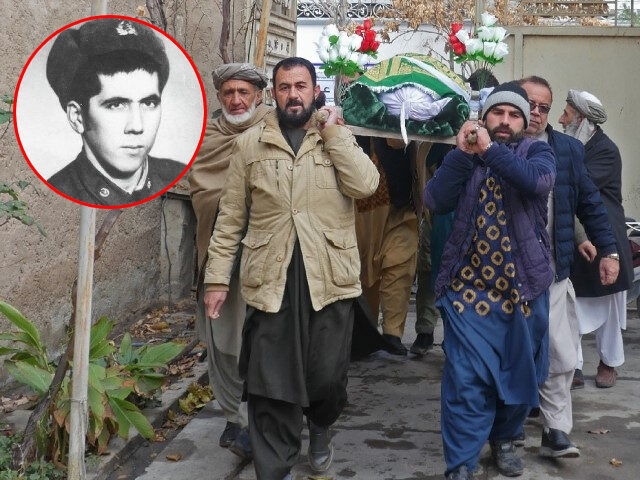(AFP) A former Soviet soldier who chose to stay in Afghanistan when the Red Army withdrew following a disastrous decade-long occupation that ended in 1989 has died, officials said Wednesday.
Bakhretdin Khakimov, who was thought to be in his 60s and was known as Sheikh Abdullah after converting to Islam, died of carbon monoxide poisoning from a leaking heater in the western city of Herat, they said.
“He died from inhaling gas that comes out of heaters,” Ahmad Shah Mushfiq, head of Herat’s forensic department, told AFP, adding that there were no suspicious circumstances.
Government spokesman Zabihullah Mujahid offered his condolences to Abdullah’s family.
“He came to Afghanistan with former Soviet forces and was taken prisoner,” Mujahid said in a tweet.
“He later became a Muslim, got married here, and lived in Herat.”
Abdullah was an officer in the military intelligence wing of the Soviet army, which occupied Afghanistan for 10 years after invading in 1979.
He was injured in battle around 1985, suffering a serious head wound, he told AFP in an interview in 2015. He said he owed his life to his Afghan enemies, who found him and treated him.
“I feel very ashamed because I damaged this country, caused losses to people,” he said at the time.
“I stayed in Afghanistan because Afghans are very kind and hospitable people.”
In recent years Abdullah, bearded and usually dressed in traditional Afghan attire, worked at a museum in Herat and also as a healer.
“He was a good man, a good Muslim,” friend Saeed Ghulam Hassan told AFP.
After invading on Christmas Eve in 1979, the Red Army pulled out a decade later having lost nearly 15,000 troops fighting Western-backed mujahideen forces.
That precipitated a civil war which gave rise to the Taliban and their first stint in power from 1996 to 2001.

COMMENTS
Please let us know if you're having issues with commenting.